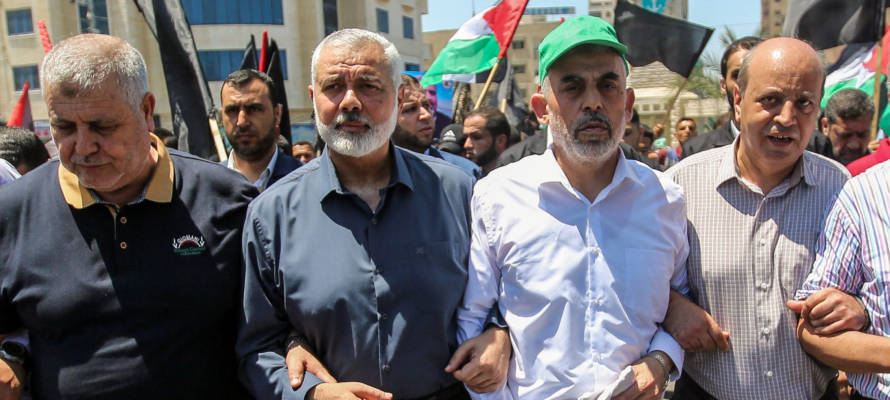Over the past few months, Hamas has rejected all ceasefire offers, while Israel agreed to a deal that would end fighting for six weeks.
Hamas is the barrier to a ceasefire being implemented in Gaza, according to US State Department spokesperson Matthew Miller.
Israel moved in a “significant way” to submit a reasonable and “incredibly significant” proposal in the ongoing talks to reach a ceasefire and release the Israeli hostages still in Gaza, Miller told reporters during a press briefing on Monday.
“There was a deal on the table that would achieve much of what Hamas claims it wants to achieve, and they have not taken that deal,” Miller added. “The bottom line is that they have rejected it, and if they did accept it, it would allow for an immediate ceasefire in Gaza of at least six weeks, which would benefit the Palestinian people whom they claim to represent. It would also allow us to continue improvements in the delivery of humanitarian assistance.”
Miller said the US is still pursuing a deal that would implement a ceasefire lasting at least six weeks, allow more aid into Gaza, and secure the release of the hostages kidnapped by Hamas during the Palestinian terrorist group’s Oct. 7 invasion of southern Israel. The Hamas atrocities, including the massacre of 1,200 people, launched the current war in Hamas-ruled Gaza, which borders Israel.
The US, Egypt, and Qatar have been mediating ceasefire talks between Israel and Hamas. Over the past few months, Hamas has rejected all ceasefire offers, while Israel agreed to a deal that would end fighting for six weeks and release 700 Palestinian terrorists from jail, in exchange for 40 hostages seized during Hamas’ Oct. 7 massacre across southern Israel.
More recently, Hamas rejected the latest Israeli proposal that had been discussed over the past week.
Israel has said any truce must include the release of all remaining hostages and be temporary, warning that a long-term truce would allow Hamas to regroup and strengthen its position to continue attacking the Jewish state. Hamas leaders have pledged to carry out massacres against Israel like the one on Oct. 7 “again and again.”
Meanwhile, Hamas has demanded that any truce must include a permanent ceasefire and full withdrawal of Israeli forces from Gaza. Hamas has reportedly presented its own hostage release proposal to mediators in which it demands a permanent ceasefire in Gaza, implemented over three six-week phases. The proposal suggests that Israel would need to observe a six-week ceasefire before receiving any of the roughly 130 hostages still held by the terrorist group since Oct. 7 — a likely non-starter for Jerusalem.
According to Miller, the onus is on Hamas to explain why it didn’t accept the latest Israeli proposal.
“The bottom line is Hamas needs to take that deal, and they need to explain to the world and to the Palestinian people why they aren’t taking it because it is Hamas right now that is the barrier and the obstacle to a ceasefire in Gaza,” he said.
